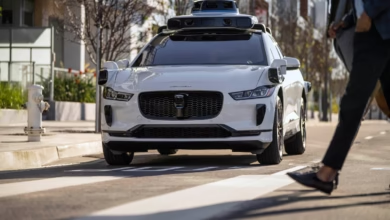Lyft and Baidu Plan Robotaxi Expansion in Europe by 2025

▼ Summary
– Lyft has partnered with Baidu to deploy Apollo Go autonomous vehicles in Europe, aiming to launch robotaxi services in Germany and the UK by 2026, pending approval.
– Baidu’s RT6 vehicles with Apollo Go will integrate into Lyft’s app, supporting its hybrid network approach combining AVs and human drivers.
– Lyft expanded into Europe by acquiring German app FREENOW for $197M, marking its first major move outside North America since its 2012 launch.
– Both Lyft and Uber have shifted from internal AV programs to partnering with third-party developers like Baidu to advance autonomous ride-hailing services.
– Uber has secured more AV partnerships than Lyft, including deals with May Mobility, Volkswagen, and Chinese firms, while Lyft’s recent collaborations include Benteler Group and May Mobility.
Lyft is teaming up with Chinese tech giant Baidu to bring self-driving taxis to European streets by 2026, marking a major step in the company’s international expansion. The partnership will integrate Baidu’s Apollo Go autonomous vehicles into Lyft’s ride-hailing platform, pending regulatory approval in key markets like Germany and the UK.
This move represents Lyft’s shift toward a hybrid network model, blending human-driven and autonomous vehicles to offer riders more flexibility. While Lyft has primarily operated in North America since its 2012 launch, its recent acquisition of German mobility app FREENOW for $197 million signaled ambitions to compete globally. Now, with Baidu’s advanced RT6 robotaxis, the company aims to carve out a share of Europe’s growing autonomous mobility market.
The race to dominate self-driving ride-hailing has intensified as both Lyft and Uber pivot from in-house AV development to strategic partnerships. Uber has been particularly aggressive, collaborating with over 18 companies, including Baidu, Volkswagen, and startups like Nuro, to deploy autonomous tech across ride-hailing, delivery, and freight. Meanwhile, Lyft has focused on targeted alliances, such as its deal with Austria’s Benteler Group for autonomous shuttles and plans to introduce May Mobility’s AVs in Atlanta later this year.
Baidu’s involvement adds a significant player to the mix. The company’s Apollo Go system is already operational in China, where it has completed millions of autonomous rides. By leveraging Baidu’s expertise, Lyft hopes to accelerate its European rollout while avoiding the steep costs of developing proprietary AV technology.
As regulatory hurdles remain, the success of this venture hinges on approvals and public acceptance. But if all goes according to plan, European passengers could soon hail a driverless Lyft, ushering in a new era for urban mobility.
(Source: TechCrunch)





